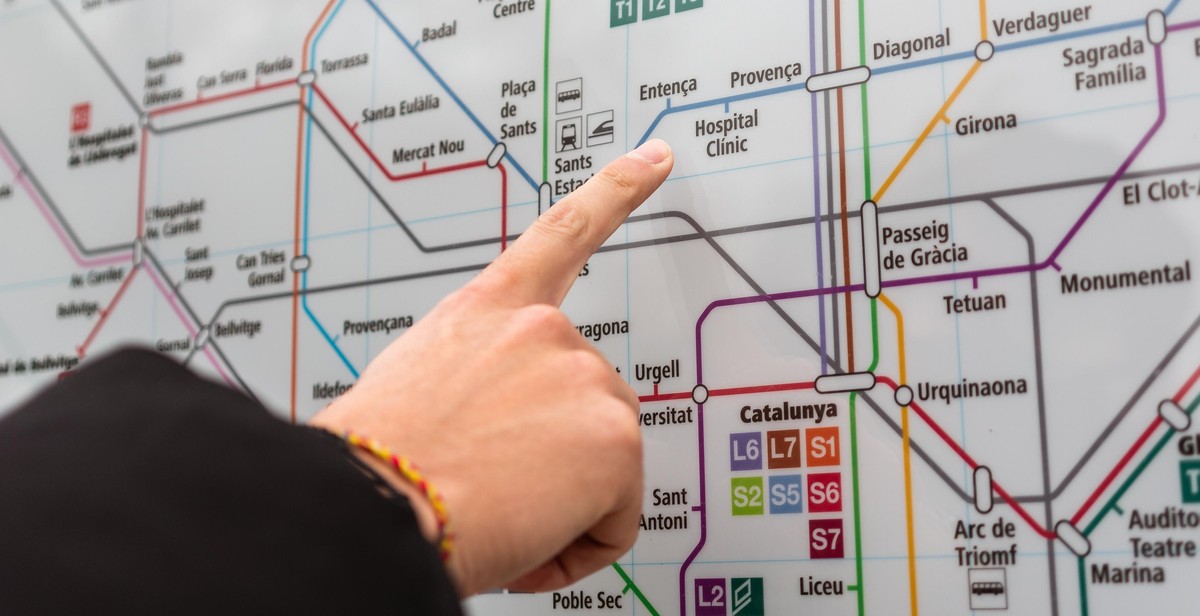Breaking Down the Friend Zone: When Friendship Turns to Love
The friend zone is a term used to describe a situation where one person in a friendship has romantic feelings for the other, but those feelings are not reciprocated. It can be a frustrating and confusing experience, leaving the person with unrequited feelings feeling rejected and stuck in a platonic relationship.
However, the friend zone doesn’t have to be a permanent place. With the right approach, it’s possible to transition from friends to lovers and build a romantic relationship with someone you’ve been friends with for a long time.
The Psychology of the Friend Zone
The friend zone can be a complex psychological phenomenon, with a range of factors contributing to why one person may have romantic feelings for the other while those feelings are not returned. Some common reasons include:
- Timing: One person may be ready for a romantic relationship while the other is not.
- Perception: One person may view the other as a friend only, while the other sees them as a potential romantic partner.
- Communication: The two people may not be communicating their feelings effectively, leading to misunderstandings and confusion.
Understanding the psychology behind the friend zone can help individuals navigate the situation and make the necessary changes to transition to a romantic relationship.
Breaking Out of the Friend Zone
Breaking out of the friend zone requires a delicate balance of communication, timing, and patience. It’s important to be honest with yourself and the other person about your feelings and intentions, while also respecting their boundaries and feelings.
By taking the time to understand the psychology of the friend zone and approaching the situation with care and consideration, it’s possible to turn a platonic friendship into a romantic relationship.
What is the Friend Zone?
The friend zone is a term used to describe a situation where one person has romantic feelings for another person who only sees them as a friend. In this scenario, the person who has developed romantic feelings is said to be “friend-zoned” by the other person.
Defining the Friend Zone
The friend zone is a concept that has been around for many years, but it gained widespread attention in the 1990s and 2000s through popular culture. It is often portrayed in movies and TV shows where one character is hopelessly in love with their friend, but the friend only sees them as a platonic companion.
The friend zone can be a frustrating and painful experience for the person who is romantically interested in their friend. They may feel rejected, confused, and unsure of how to move forward with their feelings. However, it is important to note that being in the friend zone does not necessarily mean that the person is not valued or appreciated by their friend.
Why People End Up in the Friend Zone
There are many reasons why people may end up in the friend zone. One common reason is that they did not express their romantic feelings early on in the relationship. They may have been afraid of rejection or did not want to jeopardize the friendship. Unfortunately, this can lead to the other person assuming that they are only interested in friendship.
Another reason why people may end up in the friend zone is that they have been too passive in pursuing a romantic relationship. They may have been too accommodating and willing to do things for their friend without expressing their own desires and needs. This can lead to the other person seeing them as a friend rather than a potential romantic partner.
It is also possible for people to end up in the friend zone because of differences in attraction or compatibility. The other person may simply not be interested in a romantic relationship or may not see the person in that way.
| Common Reasons for Ending Up in the Friend Zone |
|---|
| Not expressing romantic feelings early on |
| Being too passive in pursuing a romantic relationship |
| Differences in attraction or compatibility |
Overall, the friend zone can be a difficult and challenging situation to navigate. However, it is important to remember that friendships are valuable and should be cherished, even if they do not turn into romantic relationships.

The Pros and Cons of Being Friends First
When it comes to relationships, some people believe that being friends first is the best way to go. Others argue that it can be a recipe for disaster. Here, we will explore the benefits and drawbacks of being friends first.
The Benefits of Being Friends First
One of the main advantages of being friends before entering into a romantic relationship is that you already have a foundation of trust and understanding. You know each other’s personalities, likes, and dislikes, and you have likely shared personal stories and experiences. This can make it easier to communicate and connect on a deeper level.
Another benefit is that you can take your time getting to know each other without the pressure of a romantic relationship. You can learn about each other’s values, goals, and aspirations, which can help you determine if you are compatible in the long-term.
Additionally, being friends first can help build a strong emotional bond. You have already established a level of intimacy and closeness, which can be beneficial in a romantic relationship.
The Drawbacks of Being Friends First
One of the main drawbacks of being friends before dating is that it can be difficult to transition from a platonic relationship to a romantic one. If one person develops feelings for the other and the other does not reciprocate, it can lead to a lot of hurt and confusion.
Another issue is that being friends first can create a sense of complacency. If you are used to treating each other as friends, it can be challenging to shift into a romantic mindset. This can lead to a lack of passion and excitement in the relationship.
Finally, being friends first can also lead to a lack of physical attraction. If you do not feel a spark or chemistry with the person, it can be challenging to develop romantic feelings.
| Pros | Cons |
|---|---|
| You already have a foundation of trust and understanding | It can be difficult to transition from a platonic relationship to a romantic one |
| You can take your time getting to know each other without the pressure of a romantic relationship | Being friends first can create a sense of complacency |
| Being friends first can help build a strong emotional bond | Being friends first can also lead to a lack of physical attraction |

Signs You Are in the Friend Zone
The “friend zone” is a term commonly used to describe a situation where one person has romantic feelings for someone who only sees them as a friend. If you’re unsure whether you’re in the friend zone or not, here are some signs to look out for:
You Only Hang Out in Groups
If your interactions with your crush only happen in group settings, it could be a sign that they only see you as a friend. When someone is interested in pursuing a romantic relationship with someone, they will often seek out one-on-one time with them. If your crush isn’t doing this, it could be a sign that they don’t see you in a romantic way.
They Only Talk About Their Romantic Interests
If your crush only talks to you about their romantic interests or problems with their current partner, it could be a sign that they only see you as a friend. When someone is interested in pursuing a romantic relationship with someone, they will often try to avoid talking about other potential partners.
They Don’t Flirt with You
If your crush isn’t flirting with you, it could be a sign that they only see you as a friend. Flirting is often a sign that someone is interested in pursuing a romantic relationship with someone else. If your crush isn’t flirting with you, it could be a sign that they don’t see you in a romantic way.
They Don’t Show Signs of Jealousy
If your crush doesn’t seem to get jealous when you talk about other potential partners or when you spend time with other people, it could be a sign that they only see you as a friend. When someone is interested in pursuing a romantic relationship with someone, they will often show signs of jealousy when that person is spending time with someone else.
Keep in mind that these signs aren’t foolproof and everyone is different. If you’re unsure whether your crush sees you as a friend or something more, the best thing you can do is communicate with them openly and honestly about your feelings.

Breaking Out of the Friend Zone
Breaking out of the friend zone can be a challenging and emotional process. However, if you feel like you’re stuck in the friend zone and want to take your relationship to the next level, there are steps you can take.
Assess Your Feelings
The first step in breaking out of the friend zone is to assess your feelings. Are you truly in love with your friend or are you just infatuated with the idea of being in a relationship? Take some time to reflect on your feelings and make sure that you’re not just trying to escape the friend zone for the sake of it.
Communicate Your Feelings
Once you’ve assessed your feelings and are sure that you want to pursue a romantic relationship with your friend, it’s time to communicate your feelings. Be honest and open about how you feel, but also be prepared for the possibility that your friend may not feel the same way.
Give Them Space
If your friend doesn’t feel the same way, it’s important to give them space. Respect their decision and don’t pressure them into changing their mind. If you continue to push, you risk damaging your friendship and making things awkward between you.
Move On If Necessary
If your friend doesn’t feel the same way and you’re unable to move past your feelings, it may be time to move on. This can be a difficult decision, but it’s important to prioritize your own emotional well-being. Remember that there are plenty of other people out there who may be a better match for you.
| Do | Don’t |
|---|---|
|
|
Conclusion
Breaking out of the friend zone can be challenging, but it is possible. It requires honesty, communication, and a willingness to take a risk. If you find yourself in the friend zone and you want to explore the possibility of a romantic relationship, it’s important to be clear about your intentions. Don’t be afraid to express your feelings, but also be prepared for the possibility that your friend may not feel the same way.
Remember that friendship is a valuable and important part of any relationship, and it’s possible to maintain a strong friendship even if things don’t work out romantically. Be respectful of your friend’s feelings and boundaries, and be prepared to give them space if they need it.
Ultimately, the key to breaking out of the friend zone is to be true to yourself and your feelings. Don’t try to force a relationship that isn’t meant to be, but also don’t be afraid to take a chance on love. With patience, understanding, and a little bit of luck, you may be able to turn a friendship into something more.
References:
- DePaulo, B. M., & Morris, W. L. (2005). The unrecognized stereotyping and discrimination against singles. In M. A. Paludi (Ed.), Praeger guide to the psychology of gender (pp. 377-395). Westport, CT: Praeger Publishers.
- Fienberg, M. E., & Yovel, I. (2015). The dark side of relationship pursuit: From attraction to obsession. Current Opinion in Psychology, 1, 50-54.
- Kauffman, C. (2019). The Science of Love: Understanding Love and Relationships. Oxford, UK: Oxford University Press.
Note: The information in this article is intended for educational and informational purposes only and is not a substitute for professional advice, diagnosis, or treatment. Always seek the advice of your physician, mental health professional, or other qualified health provider with any questions you may have regarding a medical condition or mental health issue.
